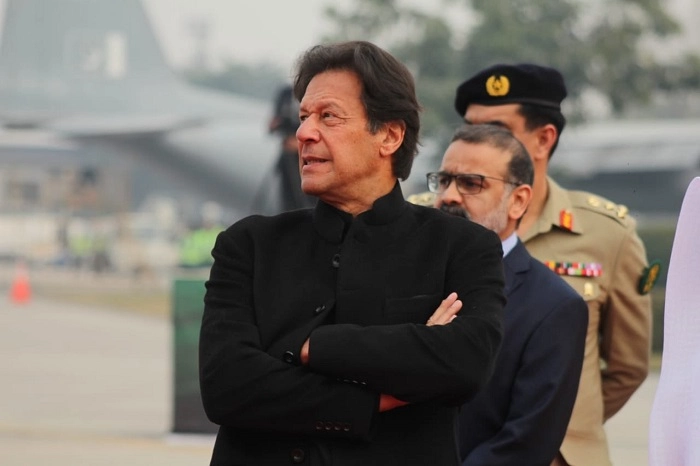Pakistan Prime Minister Imran Khan, who is sadly confused and clueless on how to appease the religious zealots in his country while appearing progressive, has made a mess of prevailing Islamic thinking in Pakistan. Khan went on-air last week speaking on Islam, society and ethical values, while answering questions. This was broadcast live on the Pakistani state television too. He was perhaps prompted by a set of advisors to touch upon Islamic society in his country. Was such an address really needed? As a result of Khan’s half-hearted and half-baked address (general people are alluding it to “little knowledge is dangerous”), the show created more confusion leading to ambiguity rather than shedding light on a roadmap for the future.
Noted “Dawn” columnist and political commentator and author Zahid Hussain described the show as a demonstration of Khan’s own ideas, bereft of any solid theological moorings. Hussain feels that in the Pakistani Prime Minister’s worldview, corruption and rising sex crimes are the only two evils that ail the minds of the Muslim youth in his country.
Khan conspicuously had nothing to say about burning issues such as economic backwardness afflicting the Muslims or their lack of any interest in modern scientific and technological education, which is rendering the country’s youth completely isolated in a competitive world.
Imran also came under criticism for blaming the young generation for engaging in pornographic activity in the social media. Such outbursts by the Pakistani PM are unbecoming of a top post he is saddled with.
Elaborating on the lack of scientific education amongst the Pakistani Muslims, Zahid Hussain opines that as a 75-year-old independent nation, only three Muslims have won Nobel prize in science, two in chemistry and one in Physics. The lone Pakistani physicist is Dr Abdus Salam who was ostracised for belonging to the Ahmadiyya community, and never got the recognition he deserved in his own country.
The youth missed an opportunity to draw inspiration from such a high achiever, thus causing more setback to the cause of scientific education. This has seen a marked decrease in the Pakistani students pursuing science in the international realm. In other words, Imran Khan the PM, also missed a grand opportunity in stirring his youth to try and come at par with the progressive societies of the world.
In a separate but Islamic related articulation, Talat Masood, another distinguished political commentator and columnist, has very categorically deplored Pakistan’s poor state of economy, despite years of being an independent nation. He says that it is sad to see Pakistan still struggling and seeking monetary assistance from the International Monetary Fund (IMF) and other institutions. Other than taking a swipe at Pakistan for its economic downslide, Masood also tries to nail a deeper problem that is preventing several other Muslim countries to compete in a globalized world.
Significantly, according to Masood, out of nineteen Muslim majority countries in the continent of Africa, which include Tunisia, Egypt, Mali, Somalia, Mauritania, Algeria, Morocco, Sudan, and Libya, all are literally struggling to survive economically.
Referring to the poor state of economy in Pakistan, Talat Masood blames the antiquated education system of the country for its stunted economic growth. Highlighting the importance of science and technological education in Pakistan, he squarely blames Imran Khan for all the ills and for focusing only on Riyasat -e- Madina concept, instead of prioritising quality science-based education. Such assessments by independent commentators really explain what ails the major Muslim societies today, especially in Pakistan.
It would, therefore, appear that instead of concentrating on religious forces driving Pakistan towards an entrenched theocracy, the country could now shift its focus on good education for a future that promises prosperity and political stability as well.
Also Read: Amid tussle with military, Imran Khan admits next three months are crucial for his survival
Also read: Rift between Pakistan’s Army Generals and Taliban leadership is now wide open
(The writer is a retired IPS officer, a security analyst, and a former National Security Advisor to the Prime Minister of Mauritius. Views are personal)




















